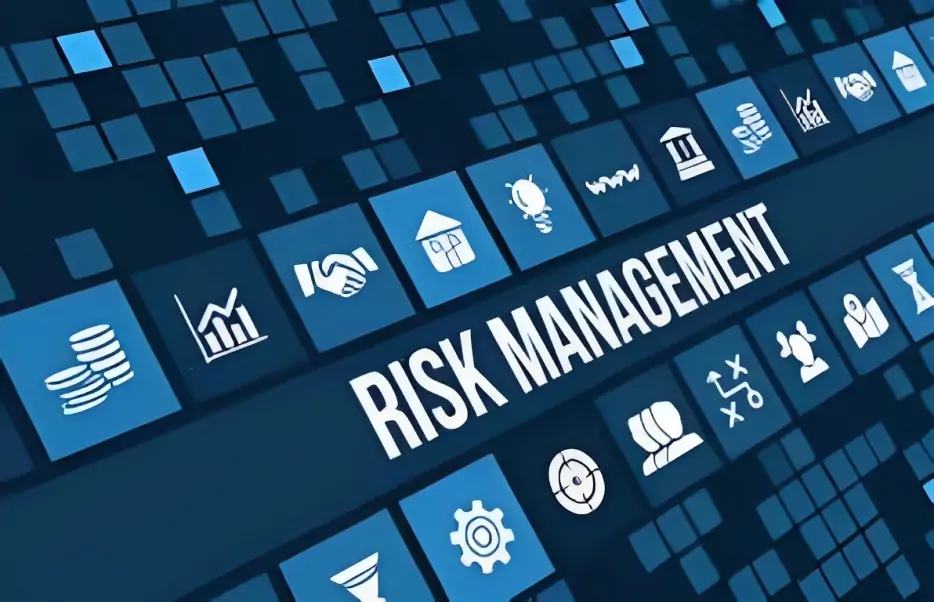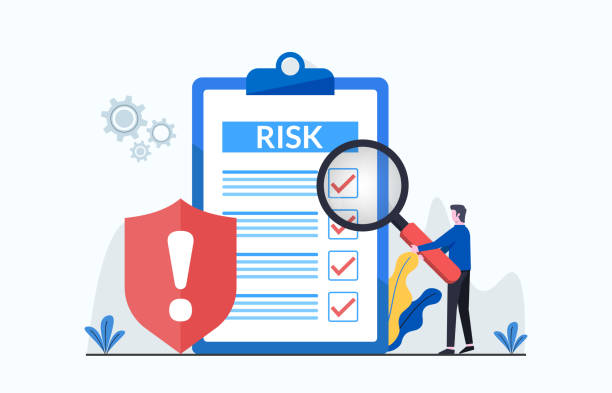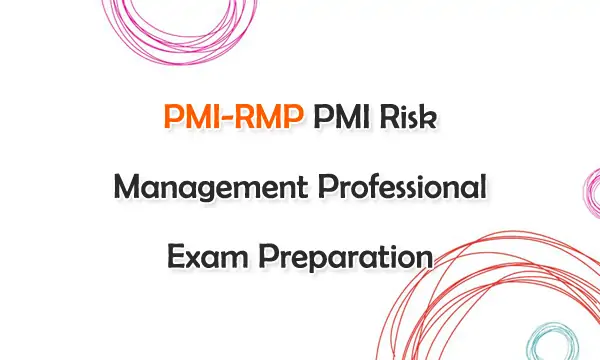Elevate Your Career with a guide on Risk Management Professional, RMP Certification: Excel in Risk Management and Advance Your Career with us.

Introduction:
In today’s fast-paced and uncertain business landscape, effective risk management has become a crucial aspect of organizational success. Risk Management Professionals (RMPs) play a vital role in identifying, assessing, and mitigating risks to protect an organization’s assets and reputation. If you aspire to excel in this dynamic field, you’re in the right place. In this comprehensive guide, we will explore the world of Risk Management Professional, RMP certification, its significance, and the steps to becoming a certified RMP.
Understanding Risk Management Professional, RMP Certification:
Risk Management Professional, RMP certification is a globally recognized credential offered by various professional associations and institutions. This certification validates your expertise in risk management principles, techniques, and practices. RMPs are equipped with the acknowledge and skills required to identify, assess, and mitigate risks effectively, ensuring that organizations can navigate uncertainty and achieve their objectives.
Why RMP Certification Matters:
Enhancing Career Opportunities:
One of the primary reasons to pursue RMP certification is the significant boost it provides to your career prospects. Many organizations, especially those in industries prone to high risks, value certified RMPs for their ability to contribute to informed decision-making and risk mitigation strategies. Having the RMP certification on your resume can open doors to higher-paying positions and leadership roles in risk management.
Demonstrating Competence:
RMP certification serves as tangible proof of your competence in risk management. Employers and clients are more likely to trust professionals who have undergone rigorous training and passed a certification exam. This credibility can be a game-changer in your career, allowing you to gain the confidence of stakeholders and peers.
Staying Updated:
The field of risk management is constantly evolving, with new risks and challenges emerging regularly. RMP certification programs include continuing education requirements, ensuring that certified professionals stay updated on the latest industry trends, regulations, and best practices. This commitment to ongoing learning is vital for staying relevant in a dynamic field.

Eligibility Criteria for RMP Certification:
While the specific eligibility criteria may vary depending on the certifying body you choose, there are some common prerequisites for RMP certification:
1. A bachelor’s degree or higher (in some cases, a high school diploma with additional experience may be accepted).
2. A minimum number of years of professional experience in risk management or related fields.
3. Completion of a specific number of hours of risk management education or training.
4. Passing the RMP certification exam.
It’s essential to review the eligibility requirements of the certifying body you plan to choose and ensure that you meet them before applying for RMP certification training.
RMP Certification Training: What to Expect
Educate candidates with the knowledge and skills necessary for success in risk management. These programs encompass various topics, including:
- Risk analysis and assessment.
- Risk mitigation strategies.
- Risk monitoring and control.
- Compliance and ethics in risk management.
- Financial risk management.

Top RMP Certification Training Providers:
Choosing the right training provider is a crucial step in your journey to becoming an RMP. Here are some reputable organizations that offer RMP certification training:
Project Management Institute (PMI): PMI offers the Risk Management Professional, RMP certification, which is globally recognized. Their training programs cover all aspects of risk management and are ideal for professionals in project management roles.
Institute of Risk Management (IRM): The IRM offers a comprehensive range of risk management certifications, including the International Certificate in Risk Management (ICRM). Their programs are recognized worldwide and cater to various industries.
Global Institute of Professional Management Certification (GIPMC): GIPMC specializes in risk management in the financial industry and offers the Professional in Risk Management (RPM) certification, which includes extensive risk management training.
American Society for Quality (ASQ): ASQ offers the Certified Risk and Quality Management Professional (CRQMP) certification, which focuses on risk management within the context of quality management.
Various Online Platforms: Numerous online platforms and educational institutions offer RMP certification training, making it convenient for individuals to access quality training materials and courses from anywhere.
When selecting a training provider, consider factors such as accreditation, course content, instructors’ qualifications, and reviews from previous students.
Preparing for the RMP Certification Exam:
The RMP certification exam is a critical component of the certification process. To ensure success, you should thoroughly prepare for the exam. Here are some tips for effective preparation:
- Review the official exam outline provided by the certifying body to understand the exam’s content and structure.

- Utilize study materials, such as textbooks, practice exams, and online courses, to build a solid foundation in risk management principles.
- Create a study schedule that allows you to cover all exam topics systematically.
- Join study groups or online forums where you can discuss concepts and share insights with fellow candidates.
- Take practice exams to assess your readiness and identify areas where you need further review.
- Consider enrolling in a formal exam preparation course offered by reputable training providers.
Taking the RMP Certification Exam:
Once you’ve completed your preparation, it’s time to take the RMP certification exam. Here are some key points to keep in mind:
- Ensure that you meet all the exam eligibility requirements set by the certifying body.
- Register for the exam through the official website of the certifying body and pay the required fees.
- Familiarize yourself with the exam format, including the number of questions, time limit, and passing score.
- On the day of the exam, arrive early and bring the necessary identification documents.
- During the exam, manage your time effectively, and don’t spend too much time on any single question. If you’re unsure about an answer, mark it for review and move on.
- After completing the exam, review your answers if time allows.
- Once you’ve completed the exam, you will receive your results. If you pass, congratulations! You will officially become a certified Risk Management Professional (RMP).
Benefits of Being a Certified RMP:
Achieving RMP certification offers numerous benefits that can enhance your career and professional development:
Career Advancement:
Certified RMPs are often considered for leadership roles in risk management, such as Risk Managers, Chief Risk Officers, or Compliance Officers. The certification can pave the way for higher salaries and greater responsibilities.
Networking Opportunities:
Certified RMPs often become part of a global community of risk management professionals. This network can provide valuable insights, support, and career opportunities throughout your professional journey.
Global Recognition:
RMP certification is recognized worldwide, making it easier for you to find opportunities both locally and internationally. It demonstrates your commitment to excellence in risk management.
Enhanced Knowledge and Skills:
The certification process ensures that you acquire a deep understanding of risk management principles and practices. This knowledge can be applied effectively in your day-to-day work, leading to better decision-making and risk mitigation.
Increased Credibility:
Certification provides you with credibility in the eyes of employers, clients, and peers. It showcases your dedication to maintaining the highest standards in risk management.
RMP Certification Renewal and Continuing Education:
RMP certification is not a one-time achievement. To maintain your certification, you will need to engage in continuing education and renewal activities, which typically include:
1.Earning a specified number of continuing education units (CEUs) or professional development hours (PDHs) through approved courses and activities.
2.Staying actively involved in the field of risk management through work or volunteer opportunities.

Career Opportunities for RMPs:
Certified RMPs are in high demand across various industries. Here are some career opportunities that await you as a certified Risk Management Professional:
- Risk Manager:
As a Risk Manager, you will be responsible for identifying, assessing, and mitigating risks within your organization. You will work closely with senior management to develop risk management strategies and policies. - Compliance Officer
Compliance Officers ensure that their organizations adhere to relevant laws and regulations. Certified RMPs are well-equipped to handle compliance-related tasks, as they have a strong understanding of risk and control mechanisms. - Chief Risk Officer (CRO):
The Chief Risk Officer is a high-level executive responsible for overseeing an organization’s entire risk management framework. This role is typically found in larger organizations and comes with significant responsibilities and influence. - Consultant:
Certified RMPs can work as risk management consultants, providing expert advice and guidance to a wide range of clients, including businesses, government agencies, and non-profit organizations. - Risk Analyst:
Risk Analysts evaluate financial and operational risks and help organizations make informed decisions. This role is common in the financial and insurance sectors. - Auditor:
Auditors with RMP certification are highly valued because of their ability to assess risk and controls within an organization, ensuring compliance with industry standards and regulations.
Unique and compelling aspects of RMP Certification:
1. Dynamic Problem-Solvers: RMP-certified professionals are the dynamic problem-solvers of the project management world. They thrive in challenging environments, leveraging their risk management expertise to turn obstacles into opportunities.
2. Risk Innovators: RMPs are at the forefront of risk innovation. They continually seek creative and novel approaches to identify, assess, and mitigate risks, ensuring that projects stay ahead of potential disruptions.
3. Risk Entrepreneurs: Much like entrepreneurs, RMPs are entrepreneurial in their approach to risk. They identify and seize opportunities, knowing that calculated risks can lead to significant rewards in project outcomes.
4. Precision Forecasters: RMP-certified individuals have a knack for precision forecasting. They can predict potential project risks with remarkable accuracy, allowing organizations to proactively address issues before they escalate.
5. Strategic Navigators: RMPs are skilled navigators in the ever-changing seas of project risk. They chart a course that aligns with an organization’s strategic objectives, steering projects toward success and profitability.
6. Risk Visionaries: RMPs possess a visionary outlook on risk. They anticipate future challenges and opportunities, enabling organizations to prepare and capitalize on emerging trends and technologies.
7. Risk Architects: Just as architects design and construct buildings, RMPs design and construct risk management frameworks. They create blueprints for risk mitigation and guide projects to completion with precision.
8. Catalysts for Success: RMP-certified professionals are catalysts for project success. They instill confidence in stakeholders, inspire teams to perform at their best, and catalyze project achievements, often exceeding expectations.
More Aspects:
9. Risk Detectives: Like seasoned detectives, RMPs have a keen sense of detecting hidden risks. They investigate every facet of a project, uncovering potential threats that others might overlook.
10. Risk Artisans: RMPs are artists in their own right, crafting risk management strategies that are both effective and elegant. They transform the complex realm of risk into a masterpiece of project success.
11. Risk Ambassadors: As risk ambassadors, RMP-certified professionals represent their organizations with distinction. They communicate and negotiate with stakeholders, ensuring that everyone understands and supports risk management decisions.
12. Risk Choreographers: RMPs choreograph the intricate dance of risk in projects. They orchestrate risk responses, ensuring that every move is coordinated, and the project maintains its rhythm.
13. Risk Visionaries: RMPs are visionaries in their approach to risk management. They see beyond immediate project challenges, envisioning a future where risks are transformed into opportunities for growth and innovation.
14. Risk Jugglers: Much like skilled jugglers, RMPs handle multiple risks simultaneously. They manage the complexity of risk portfolios with finesse, keeping all elements in perfect balance.
15. Risk Partners: RMPs are strategic partners in risk management. They collaborate closely with project teams, fostering a risk-aware culture that permeates every aspect of project execution.
Conclusion:
Becoming a certified Risk Management Professional (RMP) is a rewarding journey that can significantly enhance your career in risk management. The certification validates your expertise, opens doors to exciting opportunities, and allows you to make a substantial impact on your organization’s success.
- As you embark on your path to RMP certification, remember to choose a reputable training provider, prepare diligently for the certification exam, and commit to ongoing professional development. By doing so, you’ll not only achieve your certification but also contribute to effective risk management practices in your organization and beyond.
- If you’re ready to take the next step in your career and become a certified RMP, explore the training options available to you and start your journey towards a brighter and more secure future in risk management.

